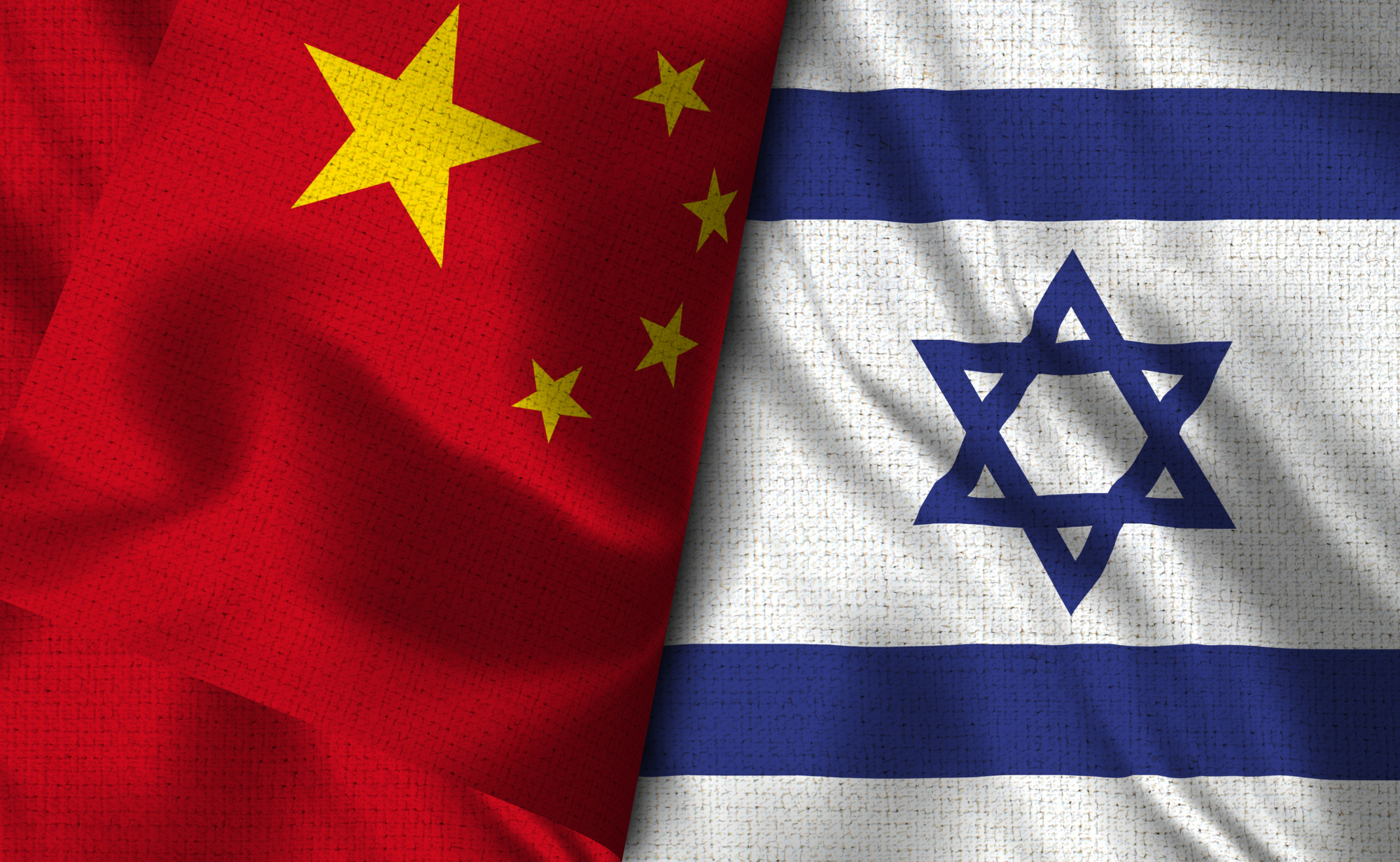The Challenge of Coping with Chinese Involvement in Israel’s Infrastructure

A fine line runs between fruitful cooperation and dangerous all-out Chinese domination of Israel’s economic sector. The State Comptroller (“Mevaker HaMedina”) has already raised a red flag, and someone needs to call a halt and to reconsider – a moment before it becomes too late.
By: Adv. Nathan Lerer
If you’ve looked up recently at the top of a construction crane at Tel Aviv’s government security building site, you might see a sign bearing the name of the contractor – a Chinese name with two short connected syllables. You won’t usually encounter billboards of these companies; they usually penetrate Israel’s infrastructure branch “off the radar.”
The issue of Chinese companies’ domination of Israeli projects made headlines when American government officials began to take action and to discuss blocking this phenomenon, and Israeli media began to take note and deal with this manifestation. So did the Israel Builders Association, and the State Comptroller even decided to publish a highly critical report regarding this phenomenon.
Israeli corporations that tender bids for international projects to execute and/or operate Israel’s infrastructures are at a disadvantage vis-à-vis foreign corporations, especially the Chinese. The reason: Israeli corporations, as contractors and employers, operate within the framework of labor and employment laws on matters such as wages, overtime, social benefits, insurance, contractor registration, licensing and supervision of engineering equipment, etc.
The Chinese corporation comes to perform the work with its own staff and equipment, without being subject to the same restrictions and/or regulations that apply to its Israeli counterpart. The Chinese corporation’s costs are cheaper, and it is difficult for the Israeli company to compete with them when bidding. Don’t even think about saying that there may possibly be political considerations in awarding infrastructure works to a Chinese corporation, no way!
The State Comptroller’s criticism delves deeply, and from his collective findings and conclusions it appears that negative aspects outweigh the positive regarding this phenomenon. There is already concern about harm to national interests due to control of foreign elements over strategic Israeli assets. It has a damaging influence on the Israeli economy, on training and maintenance of professional manpower, on non-development and even loss of professional know-how, and more.
There are Sinologists who claim that (according to foreign publications) in the Chinese Communist government system, a Chinese corporation must usually be supervised within the corporate management by a government representative. This has negative implications – because the Chinese corporation’s interests do not coincide with those of Israel, there is great danger in delivering national projects of various types to be executed and/or managed by Chinese corporations.
The State Comptroller found, inter alia: 1) Adequate attention and examination is lacking with regard to national security implications of a particular foreign body executing or operating the national infrastructure. 2) There is no obligation for the regulator to confer with the Advisory Committee on filtering foreign capital investments. 3) Awarding execution or operation of national infrastructures to non-private corporations, as required. Participation in bidding by bodies owned by foreign governments has not been restricted.
The American government’s protests and the State Comptroller’s report serve as a warning siren for the Israeli government to sober up and stop this dangerous process. The State of Israel is not like a third-world country pleading for Chinese patronage like African countries, where China has shown generosity in loans and investments, knowing that the dividend will surely come. Nor does there seem to be strategic political profit from exclusion of Israeli corporations and preference for Chinese ones.
The Chinese government’s preferences sometimes tend toward the anti-Israel axis (like Iran), and exposing national infrastructures to this foreign entity is liable to turn out to be dangerous. Furthermore, we can’t ignore the risk of harming Israel’s foreign relations, to the detriment of an existing, highly important covenant with the United States, and of pacts in the making with Moslem countries.
This is not a recommendation to carry out a PUSH-OUT process and distancing from the Chinese superpower. We need to develop and strengthen relations with China, but based on focused considerations of protecting Israel’s interests, while constantly examining Israel’s national and strategic considerations in order to protect and fortify them. It is no less important to emphasize preservation and assurance of the abilities of Israel’s very advanced corporations to cope with international contract bidding, even by providing them with incentives, and developing and safeguarding Israeli know-how.



